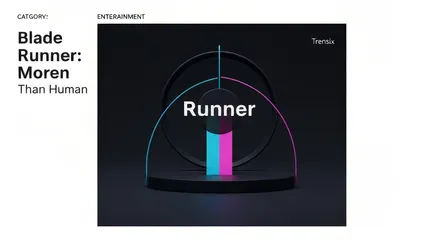Entertainment
Blade Runner: More Human Than Human

Explore the dystopian world of Blade Runner, the iconic sci-fi film that questions what it means to be human through the hunt for bioengineered beings.
What is it?
Blade Runner is a landmark 1982 science fiction film directed by Ridley Scott. Based on Philip K. Dick's novel "Do Androids Dream of Electric Sheep?", the movie is set in a dystopian 2019 Los Angeles. It follows Rick Deckard, a burnt-out 'Blade Runner' tasked with hunting down and "retiring" bioengineered beings known as Replicants who have illegally returned to Earth. Fusing sci-fi with film noir, its visually stunning, rain-drenched cityscape and complex themes created the quintessential cyberpunk aesthetic that would influence countless works to follow.
Why is it trending?
The Blade Runner universe continues to expand, keeping it culturally relevant. The critically acclaimed 2017 sequel, "Blade Runner 2049," introduced the franchise to a new generation. More recently, the announcement and ongoing development of the live-action Amazon Prime series, "Blade Runner 2099," has sparked fresh excitement and speculation among fans. Its core themes of artificial intelligence, corporate power, and environmental decay also resonate more strongly than ever in our technologically advancing world, ensuring its place in modern discourse.
How does it affect people?
Blade Runner's influence extends far beyond cinema, shaping fashion, video games, and music with its distinct neo-noir cyberpunk style. On a deeper level, the film provokes profound questions about humanity, memory, and empathy. By blurring the line between humans and the artificially created Replicants, it forces audiences to confront their own definitions of life and consciousness. The film's enduring ambiguity, particularly regarding Deckard's true identity, fuels debates that have lasted for decades, solidifying its status as a thought-provoking masterpiece.